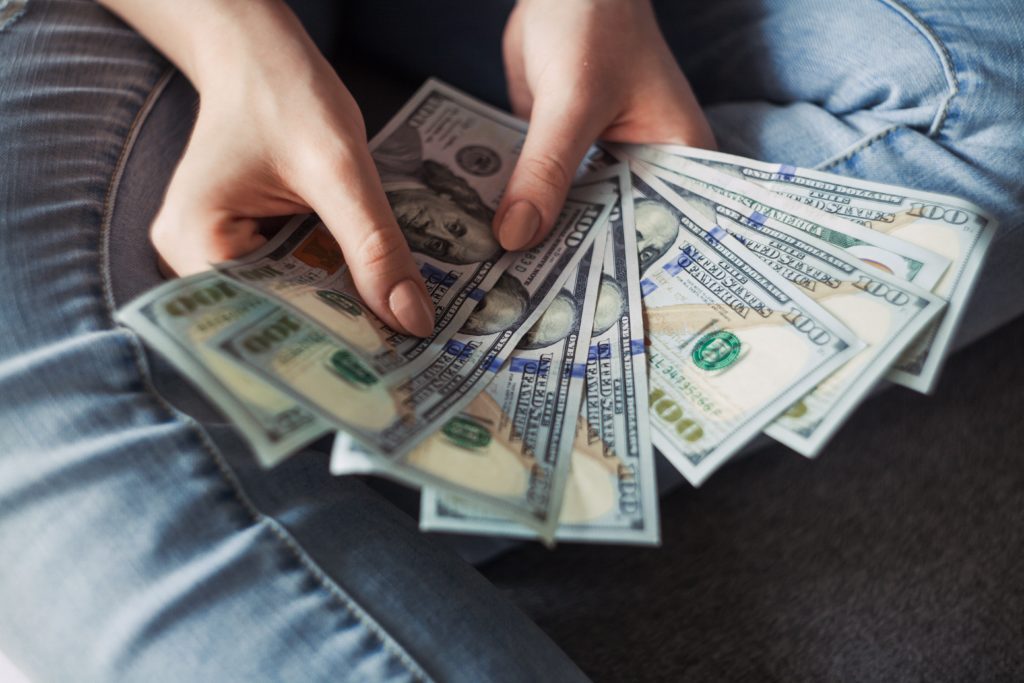The year was 1981, somewhere in the northernmost part of the state of Madhya Pradesh in India, and finally, I was here – I was born. My mom tells me that I was a quiet baby who never bothered her, which is so contradictory to what an annoying chatterbox I am today. I wonder at what point in life I wandered off the normal path of evolution.
Anyway, my town was small – as small as a rich man’s estate or probably a few football grounds. I always wondered why they named it Morena. The name always intrigued me for its origin. Only years later, I got to know that it was a conjunction of two words: Mor + Ena, i.e., the abode of the peacocks. That’s another thing that I never saw a peacock for as far as I could see or walk. Nevertheless, I always thought it sounded pretty cool, a bit Spanish.
Morena had always been known for two things – Mustard oil and the Dacoits (aka Bandits). Mustard oil for the highly prevalent mustard crop in the area and Dacoits for its proximity to the ravines of Chambal where the dacoits operated. Although mustard is pungent, its yellow flowers are a treat to the eyes. Just a drive through the outskirts of the town is enough to remind one of the fields of yellow flowers in the movie Dilwale Dulhaniya Le Jayenge. It is indeed a beautiful sight.
Morena was a notorious place in the country at one point in time. The land has been scavenged and cleared of the Dacoits since, but their folklore remains, and Mustard oil, of course. That kind of reputation has its pros and cons. No senior would rag me in college for fear, but no girl would agree to marry me either for the same reason when I reached the marriageable age. Trust me, I have come across so many instances in my life where I didn’t know whether it was a blessing or a curse to belong to a place with such a reputation. As a matter of fact, I think I’m still confused to this day.
Bollywood is no stranger to the land. They made quite a few bucks with their movies inspired by the lives of the bandits of the area. Phulan Devi, Man Singh, Paan Singh Tomar were just a few well-known names on the endless list of bandits of Chambal. Some surrendered, and some were killed in encounters. As a child, it was fascinating to hear stories from my grandmother about my grandfather’s close encounters with the bandits. My only memory of a visual of a bandit was the day I was bringing milk from a local milk seller. The police had just killed a bandit in an encounter and had tied up his dead body with ropes at the back of the police van for display while doing a round of the town to tell the tale of their heroic encounter with the bandit. It was a fresh kill, and the blood had still not dried up. It was a scene hard to forget for a six-year-old boy.
I was born into a Bania family. Bania is a merchant class in India which is as well-known as Jews around the world when it comes to money matters. This class is so hardwired to be the guardian angels of wealth for centuries that they eat, sleep and think money. Out of the 330 million Gods and deities in Hinduism, their favorite deity?
Goddess Lakshmi, of course. Who else?
Lakshmi is the goddess of wealth, fortune, and prosperity. Does that tell enough already?
No? Okay, maybe the following stories may provide insight.
When Inflation Throws a Curveball
As commonly prevalent in India, my dad would buy raw wheat in bulk and fill up 15 kg tin canisters with the wheat. He would then send me to the grain mill to have the wheat milled into flour that my mom used to make chapatis.
“20 paise per kg. This is 15 kg. 15*20=300. Here, take 3 Rupees and get this milled.”
He would then load the canister on my tender shoulders like I’m a peasant’s son, and I’d haul that load for about a kilometer without any incentive in return. It was never like other dads I had seen of my friends who would say, “Here son, get this done and keep the change.”
My dad’s math was too impeccable and heart too small to keep the change. Usually, his calculation would be perfect until there is an unforeseen change in the equation.
“15 kg. That’d be 3 rupees and 75 paise,” Kakka-ji said as he weighed the canister on the balance. Kakka-ji was another heartless miser from the same Bania community who owned the grain mill I went to for wheat milling.
“But dad said it would be 3 rupees for 15 kg.” It came as a shock to me to see my father’s pre-calculation fail. I was wrong about that. A Bania’s calculation never fails, circumstances do.
“The milling rate has changed. It’s 25 paise per kg now.” he grumbled as he dethroned the canister from the balance.
I gave a quick frisk to all my five pockets, two on the shirt, two on the pants, and one secret pocket that was always sewn on the inner side of the pants. We had no concept of pocket money (or allowance) in my family, so there was no chance I even had a spare paisa. I was only pretending to look for non-existent money in pockets to mask my destitution.
“I think I forgot to bring extra money. Is it okay if I give you the remaining balance later?” I asked, to which Kakka-ji, without speaking a word, pointed his finger to a giant signboard he had hung by his desk.
“Aaj Nagad Kal Udhaar” which literally translates to “Cash today, Credit tomorrow”.
I felt like punching myself in the face for asking the vain question to another Bania. What was I thinking?
It took every fiber of my body to lift the heavy canister back on my shoulder as I headed back home to get the extra 75 paise. The sharp edges of the canister would grind against my collarbone, it was painful, but I had no choice but to take it back with me. I had clear instructions from dad to never leave the canister unattended at Kakka-ji’s mill, or he would replace the wheat with a lower quality one.
“The milling rate has changed. He wants an extra 75 paise!” I said to my dad bitterly. My shoulder was still hurting.
“That rapacious bastard! He hikes the rate at will! I should open my own grain mill.” My dad replied in outrage as he sneaked his hand in the right pocket of his pants, pulled out some coins, and started counting.
“Why can’t you just keep some spare money in my pocket so I don’t have to make rounds?” I confronted him.
My dad looked at me like I was the biggest fool on earth who did not understand the essence of being born in the proud community of Banias.
“Someday, you would understand Son. Someday.” He sighed.
I thought that there was a mystery that I did not understand and waited for that Someday until it happened again.
The Fast and the Furious (But Mostly Just Fast)
My dad would send me to deposit the quarterly installments of the only savings he had, a life insurance policy, to the insurance office. We had only one bicycle in the house, and everyone shared it. If someone had gone out with the bicycle, others had to wait, or the only other option was to walk. My brother had already taken the bicycle that day when my dad came up to me and almost begged.
“It’s the last day to deposit the installment, and the office closes in an hour. Take this money and run to the office,” he said, handing me 426 rupees and 70 paise. “But bhai has taken the bicycle, and the office is almost 2 kilometers away!” I complained.
“Yes. That’s why I asked you to run,” he smirked.
It was summer, and it was too hot to walk or even run.
“What a sadistic father I have!” I was furious as I looked up at the scorching sun.
Of course, I was only thinking it in my head, or I risked being beaten to a pulp if I said that to his face. I had no choice. I literally sprinted for that entire distance and made it in less than fifteen minutes, only to see all the procrastinators lined up at the counter waiting to make their deposit on the last day. That did not upset me, however, because standing in line was not as bad as sprinting in blistering heat. They had air conditioners installed in the office, so I rather enjoyed cooling my sweat glands down in the pleasant breeze.
It took another fifteen minutes for my turn at the counter. I swiftly pulled out the money from my secret pocket and spilled it on the counter, along with two coins: a fifty-paisa coin and a twenty-paisa coin.
As soon as the cashier saw the coins, he stopped counting money and asked, “What is this?”
“Insurance installment,” I innocently replied.
“I know that. But what is this?” he repeated his question, pointing towards the coins.
“Seventy paise,” I replied, suspecting nothing wrong.
“Don’t you know that the government has abolished the 10-paise and 20-paisa coins?” he despised my lack of awareness of current affairs.
“Come on, I’m just a kid, not even in my teens yet. How does he expect me to be up to date with the government’s policies?” I thought in my head.
“Oh. I don’t know about that, but this is all I have,” I replied, hoping for clemency from him.
“This won’t work. You need to get a 25-paisa coin,” he declined the deposit.
“What a grumpy old man!” I thought as I picked up my cash and bolted. It was a race against time since the office was going to close in about thirty minutes. When I barged into the room, my dad was counting coins.
“Don’t you know that the government has abolished 10 paisa and 20 paisa coins?” I threw the same question at him that the cashier had used to demean me.
“Yeah. So what? They sent a bill of 426 rupees and 70 paise. So, they must accept the coins!” He insisted, showing no remorse whatsoever.
“Oh yeah? Why don’t you go and try your luck then?” I yelled.
My dad went into contemplative mode for a few seconds, probably trying to gauge the temperature outside as soon as I said that.
“Never mind. Here is the 25 paisa,” he said compassionately as he flipped the coin towards me.
“Please God, send someone to adopt me,” I petitioned, of course only in my head again.
I swear I must have broken all existing sprinting records if they had clocked me that day. I sprinted even faster this time, breaking my previous record, to reach the office just 2 minutes before the closing time. I was the last person to make a deposit that day.
I was exhausted when I reached home after making the deposit. My dad was still counting coins.
“Why do you do this to me?” I almost wailed.
“Someday, you will understand, son. Someday,” he sighed melodramatically, with such conviction surpassed only by Bollywood actors.
It took me years to find out that he would use this catchphrase not just with me, but with my brother as well. This was his way of acknowledging “I’m clueless as hell” in situations where he had no answer or justification.
We had no concept of pocket money (allowance). I didn’t even know it existed. In fact, my first realization came when I saw my school friend’s dad hand him a 1-rupee coin, saying “This is your pocket money for today.”
“A whole rupee? Just for today?” I almost fainted with the thought. I could buy my entire bucket list with that kind of money, only if I had any.
There were no birthday cakes, only homemade Gajar halwa (a dessert made of grated carrots boiled in milk) or Gulabjamuns.
“What’s wrong with that? After all, you only need some sort of sweets to celebrate.” was my dad’s argument to justify his money-saving tactic.
My mom made Ghee at home, as well as cottage cheese, Khoya, and whatnot, per my dad’s instructions. The reason?
“There is too much adulteration outside.” my dad would say.
I don’t know if that was the real reason, but I liked the idea anyway. Not because it saved us from adulteration (the least concern for a kid), or it saved money, but for the leftover milk residue, almost burnt, that my mom used to make toffees. Surprisingly, it tasted just like Coffee Bite, my brother and I’s favorite toffee!
The Power of Two Feet
The 10th grade is a transitional period in many ways, a confusing time where you are sometimes treated like a child, but you feel like an adult and vice versa. After finishing my 10th grade, my school friends were already flaunting their newly gifted scooters or bikes from their dads upon clearing the grade while I, being the school topper was still dragging the same old bicycle that we all shared, with the added responsibility of greasing its chain every other week to keep rust at bay. Honestly, I didn’t even want to waste my time asking my dad for a new bike because I already knew the answer.
But when I could not handle the peer pressure anymore, I shamelessly decided to break my resolution and approached him one day.
“Everyone has a Bajaj scooter or a Splendor, and I’m tired of dragging that piece of junk! Can you buy me at least a Hero Puch?” I put forward my request for a moped that I had already bargained in my head – I knew a scooter or a bike would have been a guaranteed denial.
“What? It’s 14000 rupees! Are you out of your mind? It’s too expensive!” He rejected my proposal outright. I wished he had seen my friends riding bikes worth more than twice the price tag of a Hero Puch before calling it expensive.
“Okay, how about Luna then?” I tried my luck, downgrading my request further to a pedal-driven moped that was almost half the price of my previous request, which was already more than half the price of the bikes my friends were riding!
“Son…” I swear, if he used his perennial catchphrase “someday you will understand” one more time, I was ready to run to an orphanage.
“God has given you two legs. Do you know why?” he completed. I didn’t know how to react. I had forgotten about the Luna and Hero Puch. I was more dumbfounded by how he could come up with this shit so quickly.
“Goddamn Banias…must be in the genes!” I reckoned as I left the room, shaking my head in despair.
He bought a new bicycle a few days later though – not because I demanded a bike or a moped but because the shared bicycle was already crumbling to death!
The Gifted Gift
One of the most memorable moments from my childhood that is etched in my memory is the day when my dad gave me a digital watch as a gift. It was a basic digital watch, but the fact that it came from him was a surprise to me.
“He must have spent a lot of money on it,” I thought, considering his spending standards.
I was so happy that I wore a short-sleeve school uniform in the winter for several days so my classmates could see my brand-new digital watch. However, my excitement quickly faded when the watch stopped working after only a few days. The display was completely blank. My heart sank.
“Dad, look! It stopped working. It’s not even been a week, and the display is already gone!” I exclaimed.
“Take it to Goyal Electronics and ask him to replace it with a new one,” he replied.
“Okay, but where is the bill? I’m sure he will ask for it,” I said.
At that moment, my dad paused and seemed to have realized something important.
“Tell him it’s the free gift that came with the Kelvinator fridge we bought from him,” he said.
I was stunned at the revelation.
Although I may occasionally fault my dad for his monetary priorities, I remain appreciative of his profound regard for education. Whenever I needed books, stationery, or any essentials for my education, he never said “no.” and I attribute much of my later accomplishments to this unwavering support.
This kind of challenging childhood was common in middle-class Indian families in the 1980s, where a simple life and a savings mentality were the norm. It wasn’t until the early 1990s, when the Indian economy opened up to the outside world and the IT industry in India began to rise, that things started to change. I was fortunate enough to belong to the generation that witnessed both sides of life in India – before and after globalization, from a simple and sparse life to a more complex and abundant one. My journey took a new turn when I turned 17 and entered college [Read: Leaving The Nest]


